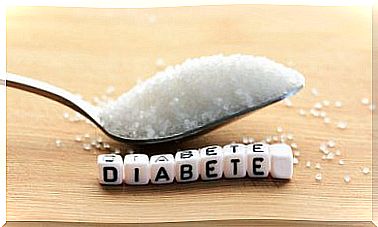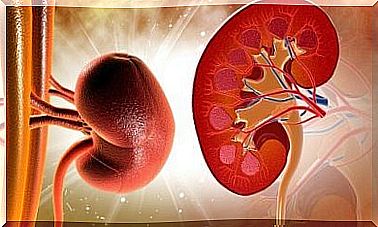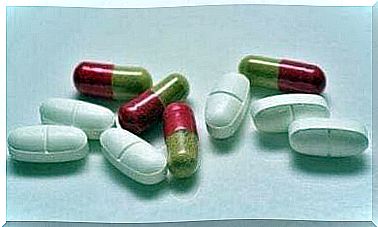Effects Of Stress On The Heart, What Are They?

Psychological factors can negatively affect various organs of the human body. Today we want to focus on the effects of stress on the heart and cardiovascular system.
We can perhaps say that all diseases have a connection with mental health. Mind and body are closely related and in constant interaction. When we lose our psychological balance, morbidity and mortality risk factors increase.
What is Stress?
Stress is the body’s way of reacting to dangerous or challenging situations. This reaction has the task of protecting us from threats.
In small doses, stressful situations shouldn’t jeopardize your health. But when they are constant, or too strong, we begin to suffer.
Stress occurs in almost all diseases, even when their pathogenesis mechanism is well known. Coronary heart disease, diabetes, migraines, irritable bowel syndrome or fibromyalgia are just a few examples.

What are the effects of stress on the heart and cardiovascular system?
The unfavorable relationship between stress and ischemic heart disease has already been demonstrated for about twenty years by analyzing patients with coronary heart disease. Many other researches have confirmed these data. However, the precise mechanisms of this link are not fully known.
There are various hypotheses that try to explain how emotional stress can cause an acute myocardial infarction, or increase blood pressure, heart rate, vascular tone or even platelet aggregation capacity. Everything seems to be related to the release of neurotransmitters.
A major increase in heart rate or blood pressure could lead to an increased demand for oxygen by the myocardium. Under certain conditions, i.e. when other risk factors are present, this can lead to acute myocardial infarction.
All these factors also refer to anomalies of the autonomic nervous system, the neural area responsible for involuntary actions, such as breathing or heartbeat.
Faced with risk factors such as the presence of atherosclerotic plaques in small arteries, a discharge from the nervous system could cause an accident within the plaque. The typical case is when atheromas rupture and obstruct circulation by interrupting the flow of oxygen to the tissues.
In addition, the stressful situations of everyday life can cause the smoker to smoke more. Or encourage, in other people, a wrong attitude towards food, with a consequent increase in cholesterol levels in the blood.
When stress affects the heart: what are the symptoms?
Some people are more sensitive to stress due to character issues or experiences. Especially for these people, it will be very important to develop mechanisms that help manage in a healthy way the factors that deprive them of the right balance.
When stress begins to act on the heart, the classic symptoms are palpitations, tachycardia or a pounding sensation in the chest.
Chest pain can also be a symptom of cardiac stress. It is not always the expression of a heart attack, but it is a dull and annoying sensation, a sense of constant oppression that alternates periods of greater intensity with moments of calm.
How to prevent the effects of stress on the heart?
Recognizing the link between stress and heart disease is a first step towards prevention. Some people tend to get into this more easily, with a greater risk of heart attack or stroke.
Preventing cardiovascular accidents is certainly possible. Along with proper nutrition and exercise, there are techniques that can calm stress. Relaxation methods can be performed in moments of greatest emotional crisis. At the same time, it will be good to avoid the factors that trigger stress and which are already known to us.
In general, the purpose of a stress management program is to reduce its impact. The sources of stress can never be completely eliminated, but they can be limited if not transformed into useful stimuli for personal improvement.

When should I go to the doctor?
It is impossible to predict to what extent stress will affect the heart. Nevertheless, being in a critical or painful situation, such as bereavement, should already make us consider the possibility of specialist help to avoid the negative consequences.
In addition to this, it will be of great help to adopt a healthy lifestyle. In other words, follow a balanced diet, avoid smoking or excess alcohol and perform regular physical activity, preferably aerobic. Adopting healthy sleep hygiene is another strategy that will help calm anxiety.
Finally, if possible, situations that make us feel under pressure should be avoided or reduced. This will not only have a positive impact on heart health, but overall well-being.









